How To Learn Photography
Did you just buy yourself a brand new DSLR? Or you’ve had one for some time now but it’s collecting dust?
Not a camera owner yet or looking to upgrade? Check out this post about how to choose a camera, your roadmap to picking the camera that’s perfect for YOU.
Are you’re wondering how to learn photography as a beginner? Do you wanna know what is the best way to learn photography?
Learning to make good photographs can seem like an overwhelming task. Because there are so many different components in a photograph. We have the camera settings and this thing called manual mode. You also heard that a good photograph solely depends on the right light. Hey and what about composition? Don’t you need like a special eye for that? And post processing your pics is something you don’t even wanna think about.
I get it. And I’m gonna be honest with you. There’s no fast track to learning photography. It takes a lot more than reading a blog with photography tips or watching a video about the exposure triangle.
But there is an effective way to master all the different bits and pieces that go into a compelling photograph. And it might not be what you think.
#1 Define Your Why
Every learning journey should start with this question. Knowing why you want to learn something brings clarity to your goals. If all you want is some snapshots from your holidays there’s no point in enrolling in a photography course for instance. But if you aim to come home with unique photos of the places you visited and the people you met along the way a photography course might be the answer to your desires. Do you see what I’m getting at here?
Getting clear on your why brings clarity in what your next steps in your photography journey are gonna be.
So, this is my question to you: “What brings you joy when you’re making photographs and what do you want to achieve.”
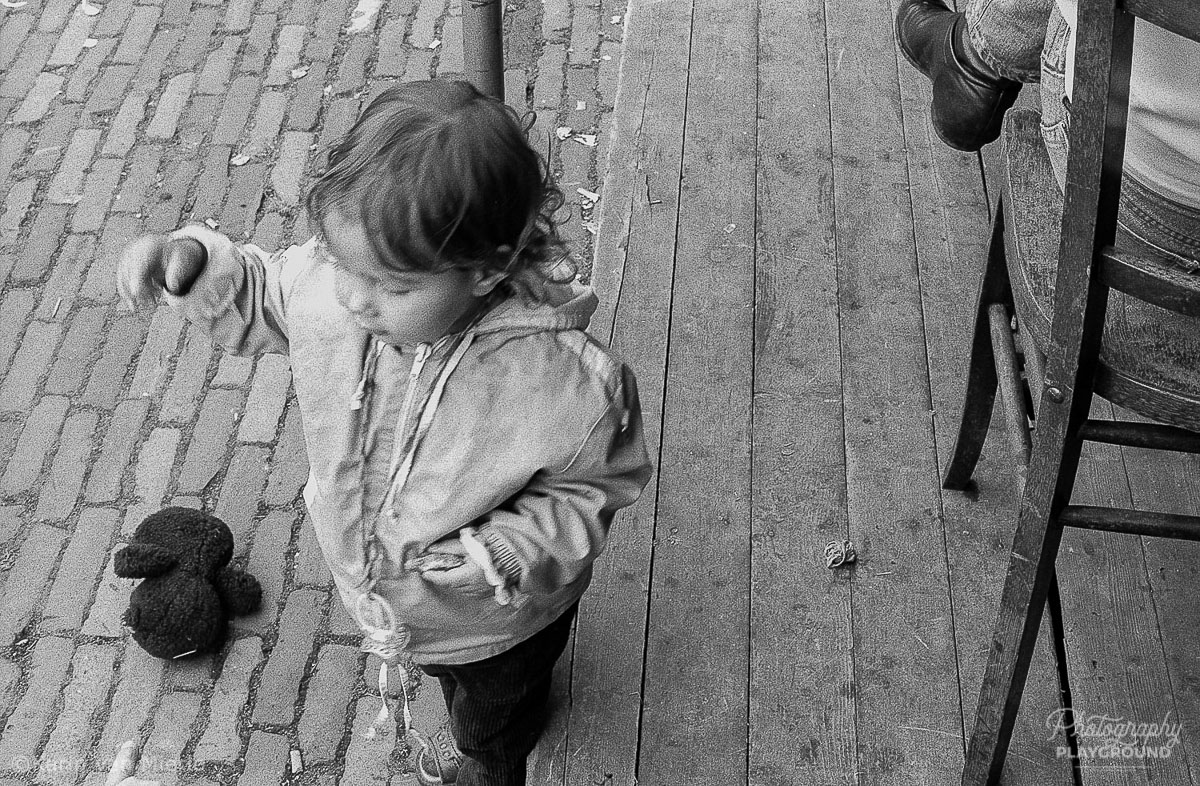
About the photos.
Early on in my photography journey I discovered I was naturally drawn to photographing children. I made these analog photographs during a street festival in the Netherlands while I was still a photography student many moons ago.
#2 Manage Your Mind
Your thoughts around learning a new skill matter a lot. It will define whether you’ll stay motivated or not. Because your thoughts can encourage you or they can trick you.
There are some common obstacles people face when they want to learn photography.
Let’s see which roadblock you need to turn into a stepping stone!
Not a Technical Person?
Maybe you’ve read a book or watched a couple of Youtube videos but you feel this technical stuff eludes you and you feel overwhelmed and frustrated. You’re convinced your mental block around all things technical prevents you from fully understanding the technical stuff.
Or maybe even after taking a course, you feel discouraged because you’re still lost in the exposure triangle and can’t seem to get past that.
Disheartening, right?
Did you ever consider it wasn’t you but the way the technical stuff was presented to you?
If you’re still stuck in auto mode even after you’ve tried to wrap your head around it many times keep reading! You’re not alone and there is a better way.
Not a Creative Person?
There is no doubt in my mind that you have a creative soul. Somehow we all go through experiences in life that make us doubt our creativity. But you know what? Creativity is innate. You were born with it. It just got a little lost along the way.
Rediscovering the creative confidence you had as a child will take time. It will also take faith in your own creativity.
The love you have for photography will give you the courage to step out of your comfort zone and learn to follow your creative impulses.
Finding a course or a mentor that encourages you to discover your own creativity instead of teaching you a few ‘creative photography’ tricks will make all the difference in regaining your creative confidence.
Read more: How To Nurture Your Creativity Back To Life
Not Enough Time?
Another thought is I hear a lot is you don’t have the time. I get it, we all lead very busy lives. And maybe you don’t have the time. That’s not for me to decide.
But I’ve also found that if you want something bad enough you’ll be able to find the time. Not only to learn photography but to enjoy your new skill for years to come. You know the thing is if you say to yourself you don’t have time that will become the truth.
A more helpful approach to this time issue is to define for yourself why you want to learn photography and how badly you want it.
Then tell yourself: I really really want this because of [insert reason]. So how am I gonna find the time? What do I need to make this happen? You’ll discover that this approach will open up new possibilities in your mind.
You can even take this a step further and define for yourself what photography does for you.
Are you so wrapped up in the moment that you’re not thinking about the past or the future? Do you see the beauty in things when you’re out and about shooting you wouldn’t otherwise notice? Is photography a one-way ticket to your happy place?
In other words, does it make you happy, and does it help you to be more mindful? If that’s how you feel you cannot afford to not spend time doing it. It’s like saying ‘I don’t have time to meditate’. Knowing that a regular meditation practice helps you to be happy, calm, and present during the day.
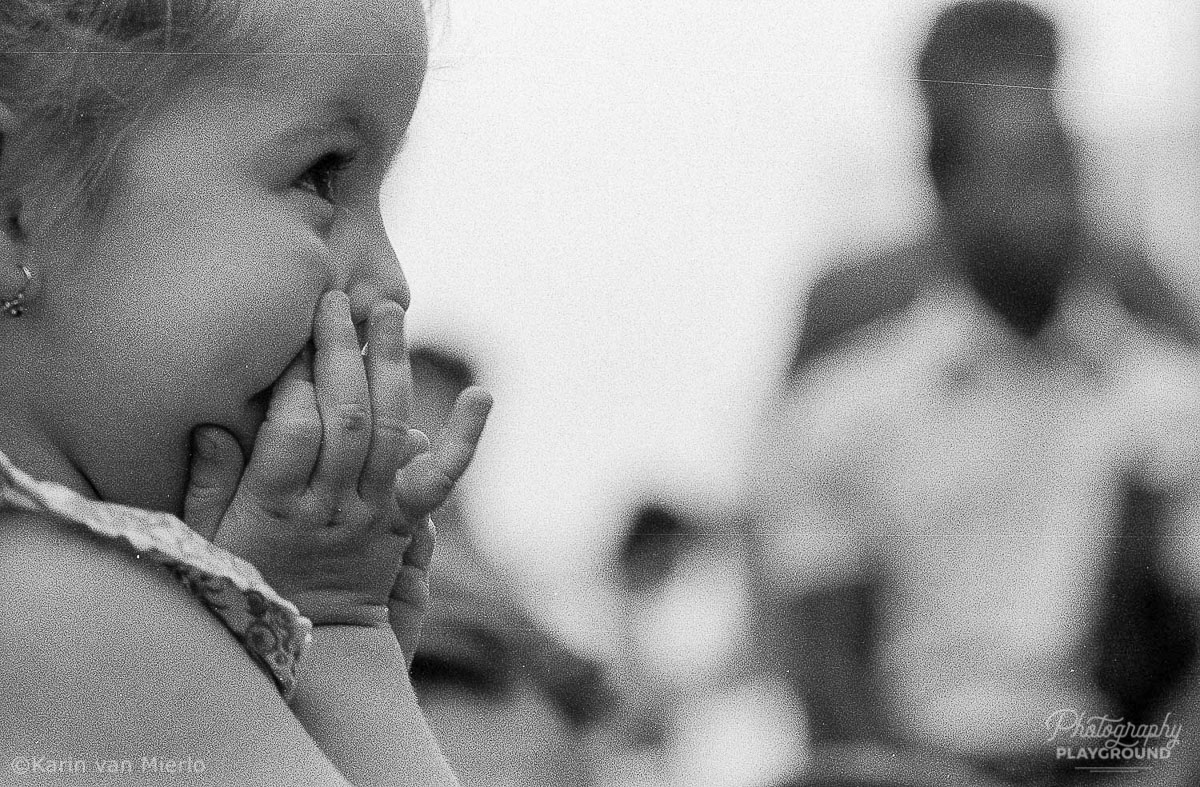
Trapped in Comparison Mode?
This is a nasty one especially when you’re at the beginning of your photography journey.
Are you comparing your fledgling efforts with a photographer that has spent countless hours and years perfecting her craft?
Don’t do it!
You can look at other people’s work as an inspiration or even an aspiration but don’t put yourself down by comparing your beginning with their middle or end.
A more loving, productive, and motivational approach is to compare yourself with yourself.
Where were you a year ago and where do you want to be a year from now. Seeing a development in your photos is all you should care about when you’re learning photography.
When this is something you struggle with it’s very helpful to create a document with photos you make over time. Write down tangible things like settings, camera, and lens and combine that with less tangible things like what you hoped to achieve and you’ll have a wonderful way of tracking your progress. Of comparing yourself with yourself.
It is my experience that actually printing the images and sticking them in a notebook works best because it’s way more tangible.
#3 The Holistic Approach
Once you know your why and you’ve managed your thoughts you can decide on how to move forward. There’s a lot of free information available online but I’m not so sure you’ll benefit from that. Because you’ll receive disconnected pieces of information. Like Youtube videos with a pro trick on how to get those smooth water shots.
You end up with a box of tricks but there’s no deeper learning. So if you’re serious you should look for photography classes.
A common learning path for photography seems to be to learn the basics of camera settings like shutter speed and aperture as a stand-alone thing. And they focus on 1 technical aspect at the time. Let’s say aperture. They go on and on about aperture. The next lesson is about shutter speed. Again endless information about shutter speed. This is the reason why you get lost in the exposure triangle. It’s called a triangle for a reason. They belong together.
But let’s assume you were able to move past that, understand exposure and have an inkling about shooting in manual mode. Yeah!
Only then do you discover that’s only the beginning. There’s a lot more that goes into a great photograph and you enroll in a course about composition. Still not satisfied with the result, your photos, you decide to improve your editing skills.
Does this sound familiar?
Everything Is Connected
The problem with this modular learning is that you create isolated islands of knowledge. Do you know what is the most essential characteristic of photography? Everything is connected!
The most challenging and exciting aspect of making photographs is that it should connect in a split second. Everything needs to fall into place the moment you press the shutter.
Knowing that you can probably see why it’s much better to have a holistic approach. A learning path where all the pieces of the photography puzzle are connected from the beginning of the journey.
Research shows that this interleaved learning is a lot more effective than batch learning one thing at the time. And it makes sense. All the connections you need to make in your brain are created simultaneously. They’re there from the start.
You don’t need to connect all the isolated islands of knowledge in your brain afterward because they were wired together while you were learning.
If you believe this integrated approach to learning photography is the way to move forward for you go here to check out Photography Demystified, Learn the Art of Expressive Photography.
#4 Learn Together
Learning together is way more fun. Period. But there’s more to learning together than that.
The benefits of having a community that shares the same passions and challenges are endless. You can stimulate, encourage and motivate each other. It’s reassuring to discover we all have roadblocks in learning a new skill. It’s also very satisfying to get constructive feedback on your photos.
A community of photography lovers exposes you to a lot of work made by other photographers. Learning to recognize what works well in a photo and what doesn’t is an often overlooked but very important aspect of becoming a better photographer.
You can join an offline community by joining a photo club or a photography meetup.
And of course, online photography communities work well because it’s so easy to share your photos online. You can look for Facebook Groups or photography forums. Or you can skip the ‘looking for’ part and jump in right now by joining the Photography Playground Facebook Group.
#5 Develop a Photography Habit
No one ever became a better photographer by watching a couple of videos or reading a book.
Photography is a skill in the same way writing is a skill. Everyone can write. Everyone can put words on paper and create sentences. That doesn’t make you a good writer. Writing compelling and moving sentences is a skill you can learn.
With photography, it’s the same. Nowadays almost everyone has a camera. But knowing how to push a button doesn’t make you a good photographer.
Practicing your skills is important if you want to make compelling and moving photographs. And the real benefits start to show when you commit yourself to photograph regularly.
That’s why it’s so valuable to create a photography habit. You can carve out small amounts of time over the week and photograph daily. Or you can devote a longer period once a week. Whatever you decide to do try to stick to it.
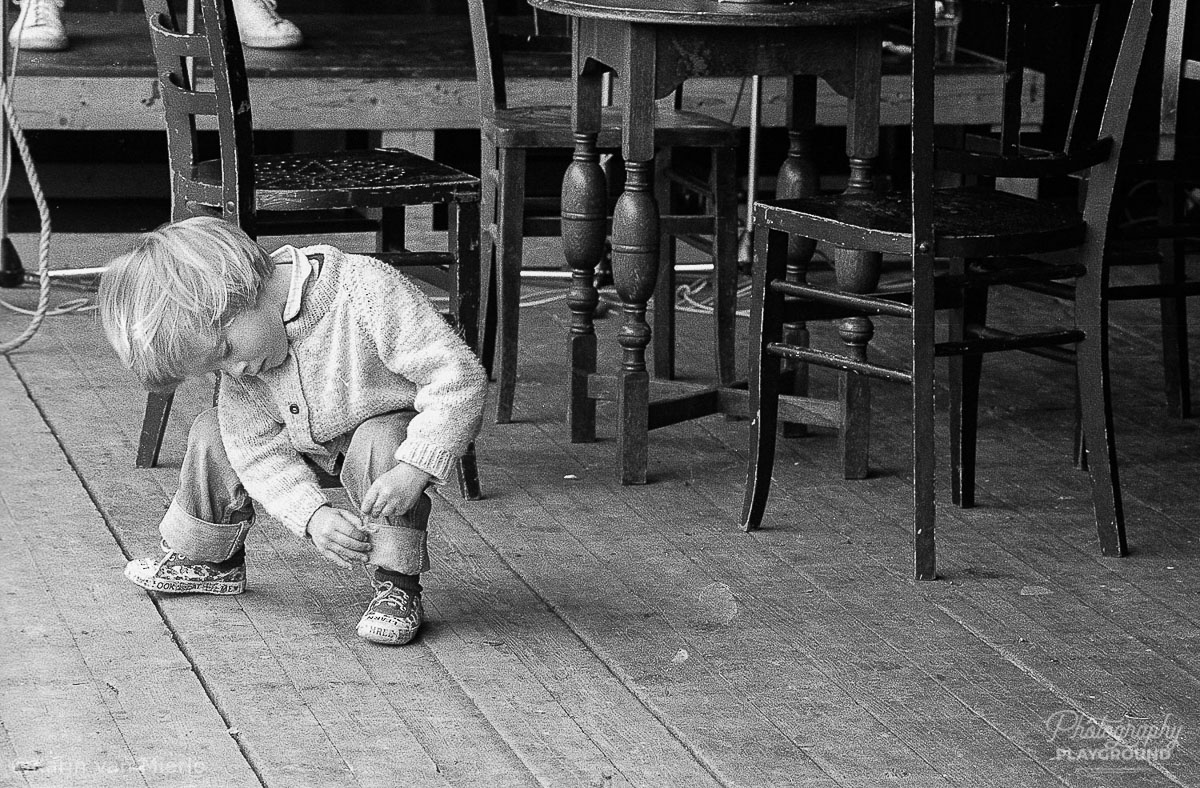
#6 Reflect On Your Photos
By reflecting I don’t mean a quick yes I like this photo or no I don’t like it.
Reflecting on your work means going deep into the what, how, and why of the photo.
Having a framework to assess the different components that make up a photo is very helpful. Because it will show you the aspects you need to work on for the next one.
By reflecting on your photos you create an opportunity to learn from your mistakes. You’ll also discover your strong and weak points.
And over time you start to see commonalities in the way you approach your subjects.
Another great thing about reflecting on your photos is that you can see yourself getting better and better. And that’s the best motivation you can give yourself preventing you from falling into the comparison trap.
By reflecting on my own work over my many years as a pro photographer I developed a framework for looking at photographs. This system gives you the tools you need to reflect on your photos.
It’s the framework I teach in Photography Demystified, Learn the Art of Expressive Photography.
#7 Immerse Yourself
Another great motivator is to discover what you love to photograph. It all starts with discovering the things that light you up, bring a smile to your face, and fuel your curiosity.
Photographing what you love gives you the motivation to keep going. That’s why discovering what you love to photograph is an important step in becoming a better photographer.
There are 2 ways to go about this. Discovering the subjects you are naturally drawn to photograph is one way.
But immersing yourself in the photographs of others will also help you a lot in this discovery journey.
You can go to the library and flip through photography books. Then bring home the one that speaks to you the most and define for yourself why you’re attracted to these photos.
Visiting a museum is another way of discovering what you like and don’t like. It doesn’t even have to be a photography exhibition. Any form of art will give you new ideas and inspiration.
You can also follow your favorite photographers on Instagram or visit photography websites like 500px or Flickr. The great thing about that is that you can share your photos as well and who knows you might even get some great feedback on them.
Final Thoughts
I hope reading this article has given a better understanding of how to learn photography and why you might have lost your mojo in learning this beautiful craft. Because learning photography and knowing how to make photographs that are awe-inspiring to you and others is the most amazing thing.
For me, learning photography is a life long journey. There are always new things to explore and new boundaries to cross. That’s one of the things I love about photography. I’m never done!
How about you? Tell us in the comments what you love the most about photography! What brings you joy when you’re making photographs?

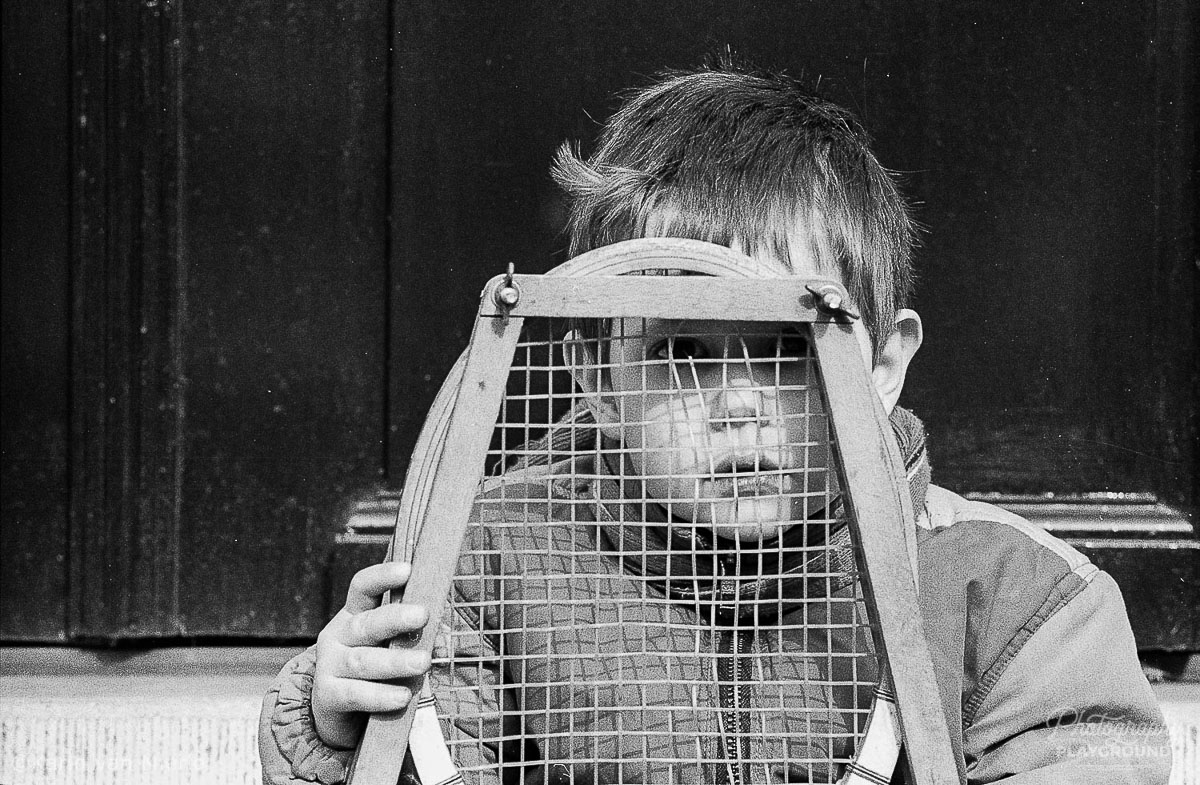
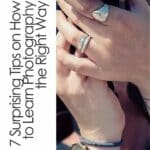
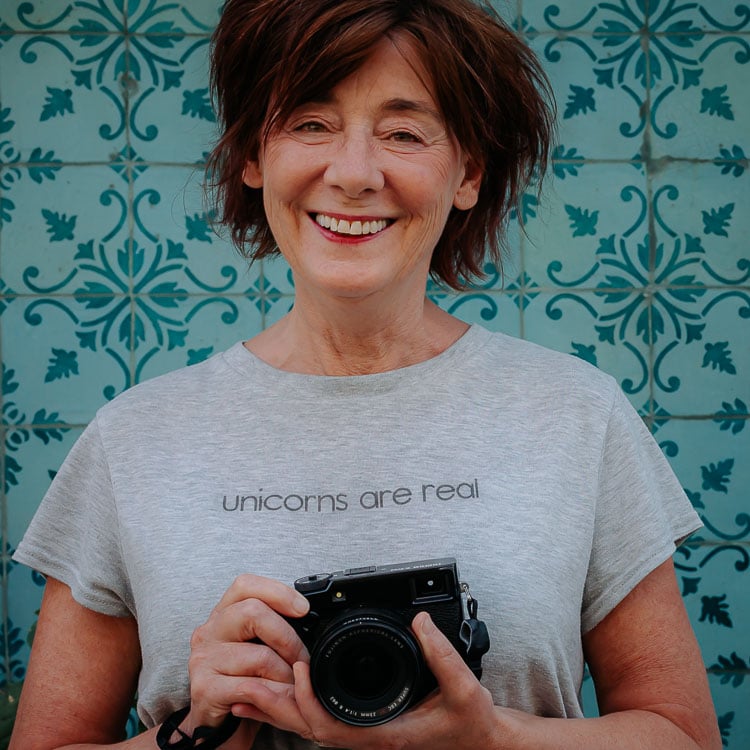
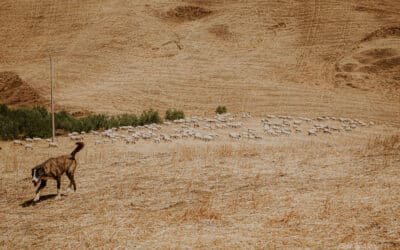
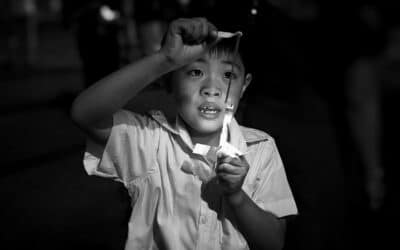

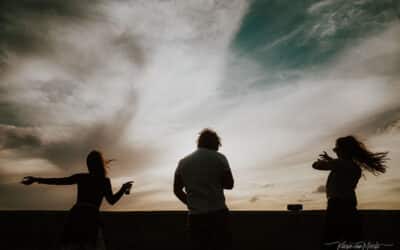


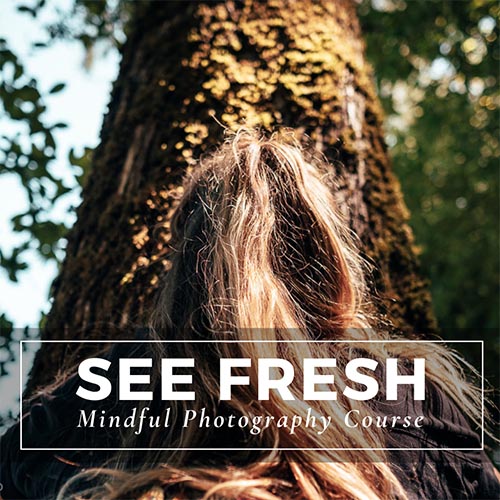
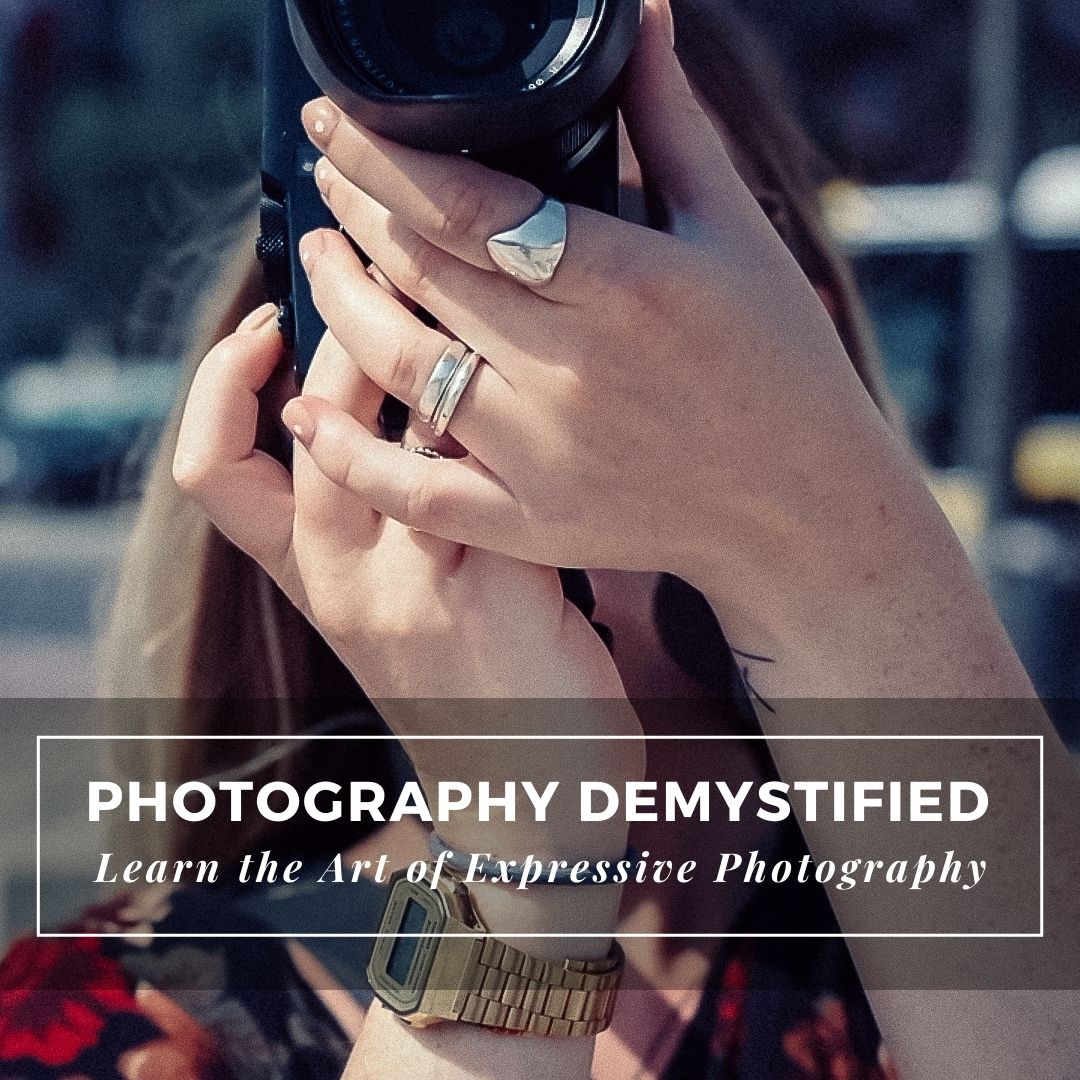
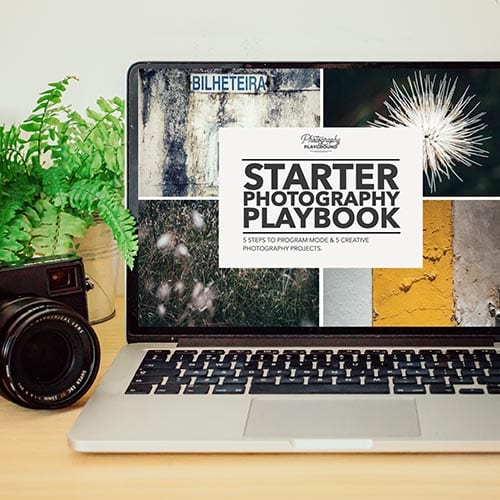
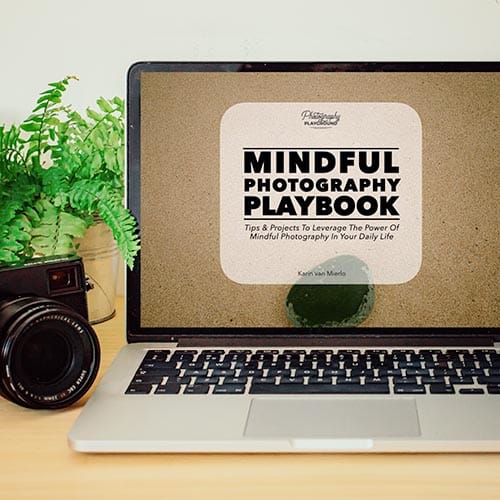
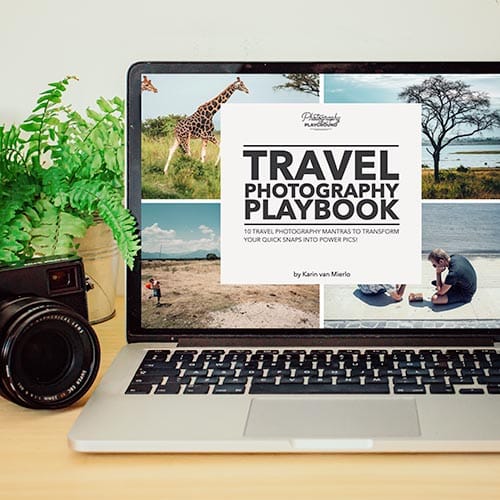
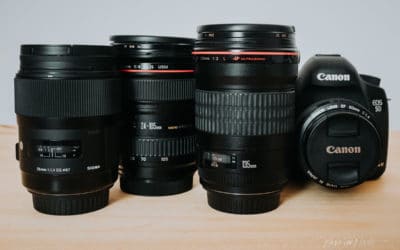
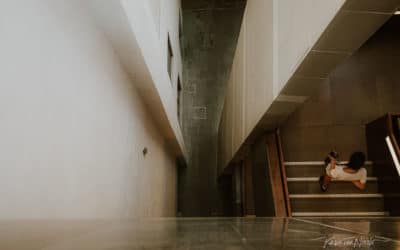
I agree. Sometimes, it’s your mindset and where you’re at, to think I took an intro class and still barely learned anything but when I took a class voluntarily years later, my willingness to learn made all the difference.
Yep, it’s all about the mindset 🙂
This is a good, solid list but in my case I don’t do numbers three and four. I’m far too much of a loner to reach out to other people. Looking at the pictures of other people whether it be in a gallery or online is fabulous but doing a walk-around with someone is not my cup of tea. A few years ago I did it a couple of time but it wasn’t enjoyable.
Reflecting on your photos, that is extremely important. I often take photos that don’t work out, but I know I will go back to them on a different occasion and try for something better because they are worth it. Having that “failed attempt” on my computer is important because when I look at it again, I will know what to do next time (hopefully!).
Thank you.
An insightful article Karin. For me, a photograph is a good way to stop memories fading, and is a key reason I always carry my camera with me.
Thank you, David! I’m happy you liked it.
Thanks for all these tips. I believe that learning together is something that would generate the best results for me as I usually need people to help me learn and obviously have fun together. Thanks a lot for helping me identify.
You’re welcome 🙂 Glad you liked it.
My photography inspires me to look more closely at the beauty that surrounds us. I love to be able to sit down and look at my photos because they bring back the happiness I felt when I snapped them. Good memories should be taken out and enjoyed often.
Yes! That’s what it’s all about 🙂